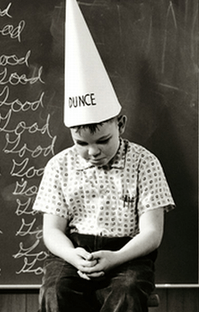
The thesis of my 2008 book, The Dumbest Generation, was that digital tools and media have become so prominent in teens’ and 20-somethings’ thoughts and acts that their intellectual and civic capacities are bound to deteriorate. While devices and social networks allow the possibility of intellectual and civic engagement, I argued, they mean something else entirely for the young, in a word, contact with one another, anywhere and anytime. Because of the anti-intellectual nature of peer pressure, the more they communicate with one another, the less they acquire historical knowledge and cultural literacy (of the non-youth culture kind), both of which are essential to responsible citizenship.
Moreover, I said, the lessons in school that might counteract digital youth culture were happening less and less. In colleges, for instance, U.S. history general education requirements have given way to some version of a “History, Society, Culture” umbrella which covers copious identity and diversity offerings, in part because my colleagues have lost faith in American greatness and feel that it would be chauvinistic and authoritarian to impose a core tradition of events, figures, texts, and values upon the rising generation. In high school, too, instruction in the Puritans, the Founding and Founders, natural rights, World War II, the Cold War, and other accomplishments of the nation has diminished, and when they are taught, the manner of presentation is often skeptical and critical, highlighting the sins and victims of the past. Students leave school feeling little pride in their country. The Gettysburg Address is just a syllabus assignment, that’s all. Youths complete their homework as quickly as possible, then get back to reading and writing the 3,500 text messages they rack up each month.
Liberal and libertarian commentators cast judgments like that as a case of reactionary nostalgia, moral panic, or golden-age thinking, but results keep coming in that prove the traditionalists’ dismay. SAT scores at their lowest point in decades, rising rates of narcissism, the number of students who need remediation in college, employers who can’t find young workers with technical skills, practical aptitudes, and professional behavior. . . the disappointments are proliferating.
Last month, another report came out extending the low scores of Millennials to precisely the anti-civic, pro-social syndrome predicted in The Dumbest Generation. It reports the findings of a survey of young adults on a variety of dispositions and beliefs, conducted by Pew Research and bearing the title “Millennials in Adulthood”. The conclusion is neatly summed up in the subtitle: “Detached from Institutions, Networked with Friends.” Overall, it found, 18-33-year-olds in America are less connected to political parties, churches, local associations, and their own country than are older Americans. They are solidly liberal, but their values seem more derived from social attitudes than from political policies, supporting same-sex marriage and “lead[ing] all generations in the share of out-of-wedlock births.” They favor an “activist government,” understood as maintaining entitlements and benefits, not as a political or economic outlook.
In other words, they judge politics by how it affects them, and we see that personal-only perspective in their social focus. They are much more connected to friends and peers than their elders are, with fully 81 percent of Millennials having Facebook accounts, and the “median friend count is 250”! They “are also distinctive in how they place themselves at the center of self-created digital networks,” for example, posting “selfies” at higher rates.
There you have the equation. More peer stuff means less civic sense. While 75 percent of Baby Boomers and 81 percent of the Silent Generation believe the phrase “A patriotic person” fits them “very well,” only 49 percent of Millennials do. Half of them, that is, have little appreciation of their country and fidelity to its traditions. They don’t much care about civics and politics and history, and they don’t know much about it, either. On the 2010 civics exam of the National Assessment of Educational Progress (the Nation’s Report Card), scores for 12th-graders fell three points from 2006 and one-third of test-takers stated that they hadn’t studied the U.S. Constitution at all during the year.
The impact on policy is clear. If people don’t know anything about the Bill of Rights, the Puritans, the Wars of Religion, and church-state relations, and if they have diminishing commitment to churches, then they won’t understand the importance of religious liberty. When the Little Sisters of the Poor refuse to compromise their religious beliefs in order to accommodate Obamacare’s contraception mandate, youths with no historical knowledge and religious commitment of their own shrug, “What’s the big deal? What’s the problem with these nuns?” When the president goes on comedy shows and yuks it up with the host, people who remember George Washington grimace at this degradation of the Office of the President, but people who spend all their time on social media love it. “He’s just like one of us,” they say. They voted accordingly, even though Obama-Democratic policies mean that they will pay for the older generation’s entitlements and public pensions until they reach the age of 65 themselves. They form the Founders’ nightmare, a citizenry with no civic virtue, regarding their country as a benefits machine and ignoring the lessons of the past and giving American greatness a sarcastic eye-roll.

A longstanding science fiction trope (derived from mythology) has the unwitting sap sucked into the glittering entertainment and lost — TV and video games in past decades. (“The Bishop of Battle” from the ’83 movie “Nightmares” is one dumb example, but there are many better.) No one seems to make these kinds of stories anymore, no one seems to worry about the problems of dehumanizing technology. Wonder why?